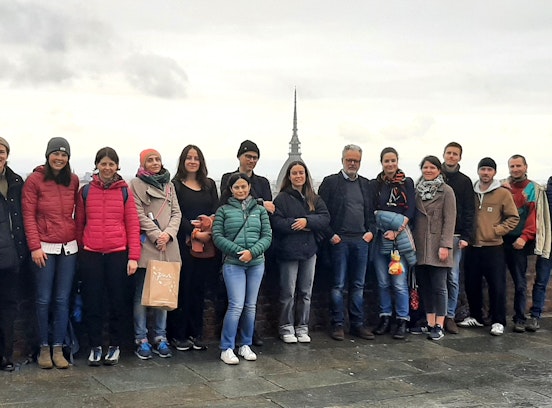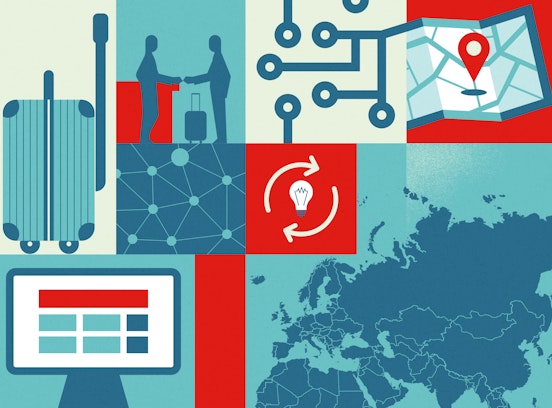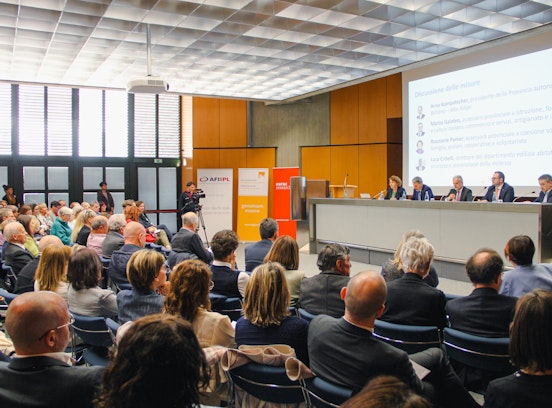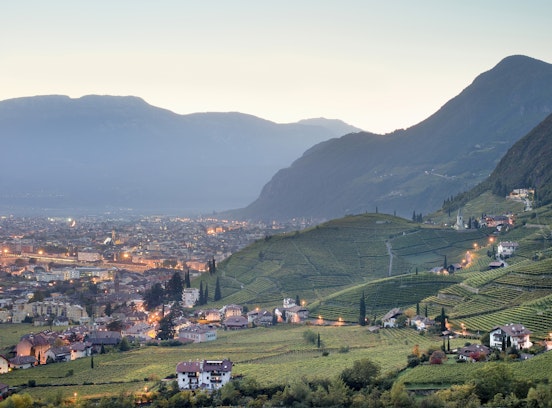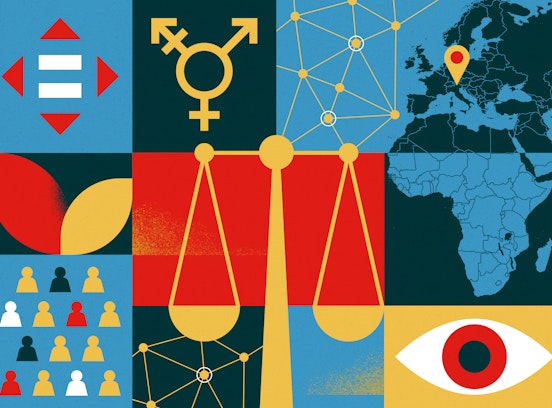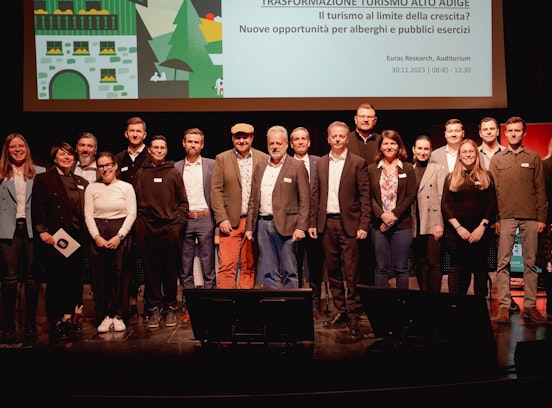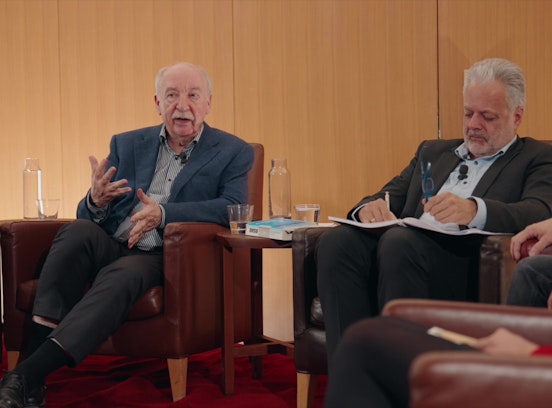Center for Advanced Studies - News & Events - Political Economy of the Covid-19 Pandemic in Europe
Political Economy of the Covid-19 Pandemic in Europe
Selected questions at the intersection of economic and political issues in times of uncertainty
- Deutsch
- English
- Italiano
- Date: 17-18.06.2021, 13.15 - 15.40 & 9.00 - 10.40 CET
- Place: Online on Zoom
- Typology: Online Workshop
The Center for Advanced Studies of Eurac Research in cooperation with the Institute of Political Science at the University of Leipzig (Germany) invites to an international digital workshop on June 17th and 18th, 2021.
Covid-19 and equality: perspectives from gender economics
Alyssa Schneebaum, Vienna Business School, AustriaLabour Mobility in the Post-Covid European Union. Insights from Poland
Bartosz Michalski, University of Wroclaw, PolandGender, policy and politics during Covid-19 pandemic in Hungary and in Poland
Dorota Szelewa, University College Dublin, IrelandThe uneven geographies of COVID-19
Costis Hadjimichalis, Harokopio University, Greece
Program | Thursday, June, 17th 2021
13:15 |Welcome and Opening
Harald Pechlaner, Head Center for Advanced Studies, Eurac Research, Italy
Ireneusz Paweł Karolewski, Institute of Political Science, University of Leipzig, Germany
13:30 | Short Presentations (10-15 minutes each)
Moderation: Harald Pechlaner & Ireneusz Paweł Karolewski
Short break
14:30 | Joint Discussion
15:40 | Closing words
Subnational lockdowns and environmental attitudes in the UK
Federica Genovese, University of Essex, United KingdomPopulism, trust and economic shocks. What does it tell us about post-Covid voting
Steve Stillman, Free University of Bolzano-Bozen, ItalyThe political economy situation in Switzerland and potential lessons for Europe
Jan-Egbert Sturm, ETH, Zürich & KOF Swiss economic Institute, SwitzerlandThe financing of Covid-19 via (wealth)-taxes
Laura Seelkopf, University of St Gallen, SwitzerlandSupply chains and firms’ preferences on trade policy in the wake of Covid-19
Aydin Baris Yildirim, World Trade Institute, SwitzerlandInflation after Covid-19
Wojciech Paczos, Cardiff University, United Kingdom
Program | Friday, June, 18th 2021
09:00 | Welcome and Opening
Harald Pechlaner, Head Center for Advanced Studies, Eurac Research, Italy
Ireneusz Paweł Karolewski, Institute of Political Science, University of Leipzig, Germany
09:10 | Short Presentations (10-15 minutes each)
Moderation: Harald Pechlaner & Ireneusz Paweł Karolewski
Short break
10:10 | Joint Discussion
10:40 | Closing words
Registration:
For information and registration please contact: mirjam.gruber@eurac.edu
How can cooperation between European countries be ensured and fostered in a post-Covid-19 setting?
What is the relationship between economic and political aspects in this regard?
Are economic measures an adequate means for ensuring the rule of law and democracy in European countries?
How should be dealt with nationalist/ sovereigntists governments at EU level?
Which EU economic measures would be beneficial for the reduction of structural inequalities between European countries?
How can problems concerning the shortage of labor supply and intra-European labor mobility be best addressed?
How can East-West integration be successful, particularly in times of the current coronavirus crisis and with a special focus to economic and labor market relations?
To what extent do recent geopolitical developments and the rising influence of China's political capitalism influence the economic landscape in Europe?
What role does digitalization play for European economic cooperation?
Abstract
For more than a year, Europe and most of the world have been hit by the coronavirus pandemic. Worldwide, 2,862,664 deaths have been attributed to the novel Sars-Cov2 virus (April 7, 2021) and the numbers are still rising. Infection rates define economic, social, and political life in all European nations and beyond. The current pandemic has also led to a tendency towards national thinking in most European countries, undermining a European feeling of cohesion and disregarding a common policy approach to solving the crisis on several levels.
In the foreground of the pandemic discourse, not only health and social aspects but also economic issues are intensely debated, bearing immediate political implications, and raising questions about the future of European politics, economy, and society. A perspective based on political economy therefore is necessary to understanding the current context and possible developments in the years to come.
One of the main concerns that has been made evident by the coronavirus pandemic regards for instance the supply of labor force. Especially during the first lockdown in 2020, countries did everything in their power to remedy the lack of workers in sectors such as agriculture and nursing. For instance, despite strict entry regulations, Germany and Austria organized chartering planes for labor immigrants from Eastern European countries. By contrast, other countries prolonged the legal stay of regular migrants working in agriculture, others, such as Italy or France, issued residence permits for undocumented migrants or extended working permits for asylum seekers. Strategies to attract local students, unemployed or inactive persons into the agricultural workforce were also adopted.
The example of agriculture showed thus the fragility of labor-intensive sectors in face of the Covid-19 mobility restrictions and highlighted that the high productivity of most industrialized European countries can, to some extent, only be sustained thanks to the import of cheaper and/ or sector-specifically trained labor from other EU and non-EU countries. The effects of the pandemic impacted European countries therefore on various levels, while its harshness surely depended on their sectorial composition and labor force intensity. The devastating socio-economic consequences such as the exacerbation of inequalities and rising precariousness concerned however both individuals as well as entire countries, highlighting the various levels of interconnectedness of the European economy. For instance, the lacking inflow of remittances surely also financially impacted the livelihoods of families relying on migrant work in many Western European countries.
To mitigate the severe financial consequences of the pandemic, the EU has discussed aid and reconstruction funds already after the first wave of the pandemic in spring 2020. After vehement internal disputes and long polemic negotiations, the intra-European conflict has shifted from mainly economic questions to political ones: Money transfers were not only linked to accountability but made conditional to the respect of the European rule of law. However, nations that recently revealed authoritarian traits, such as Hungary and Poland, insisted on their sovereign decision-making power. The recent upswing in nationalism and populist movements all over Europe indeed continues to complicate a common approach to crises management. Just as during the so-called migration or refugee crisis, the Covid-19 pandemic seems yet to have reinforced this tendency, fueling EU skepticism and anti-European and nationalist narratives and discourses.
The years to come will show what consequences the pandemic will bring for democracy and European Cooperation. However, the current developments on the political and economic dimensions in Europe demonstrate the need for discussion and mutual exchange starting from today. Indeed, the context of the Covid-19 crisis highlights an increasingly urgent need for Europe to build a strong and resilient community in a post-pandemic setting. To foster successful economic and political integration, research can help to create a deeper understanding and mutual appreciation among community members, as well as among external political and commercial partners. Regarding the future direction of the European project, several questions arise:
Organisation
Eurac Research
Center for Advanced Studies
Drususallee 1 / Viale Druso 1
39100 Bozen / Bolzano
T +39 0471 055 801
advanced.studies@eurac.edu
Institute for Political Science University of Leipzig
Geisteswissenschaftliches Zentrum
Beethovenstraße 15
04107 Leipzig
T +49 341 97-35610
